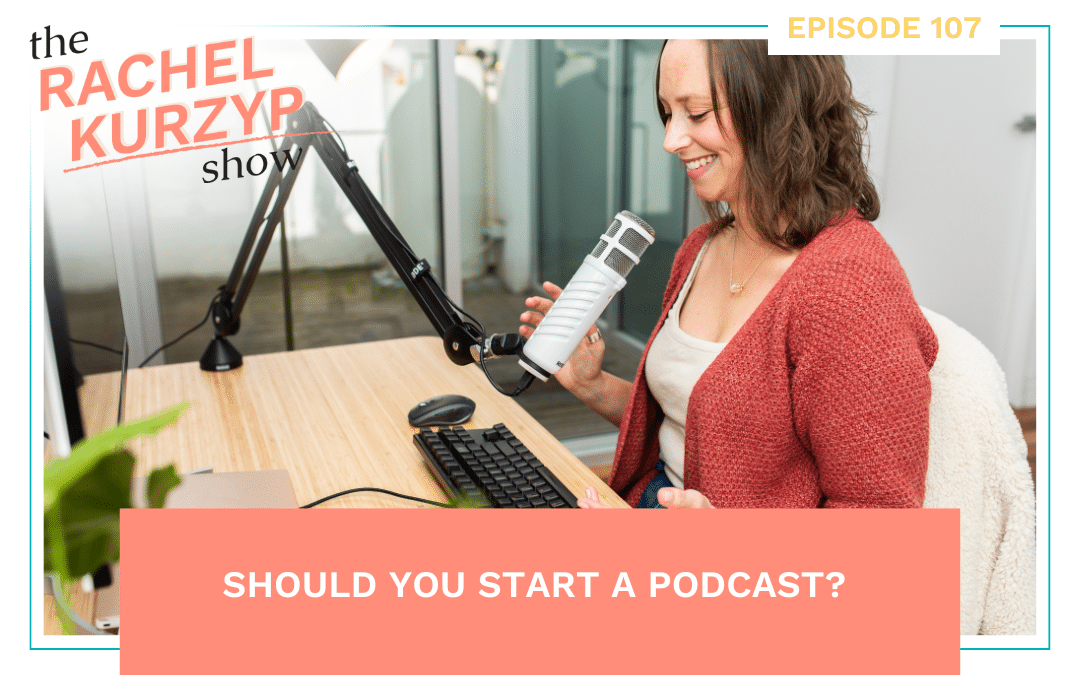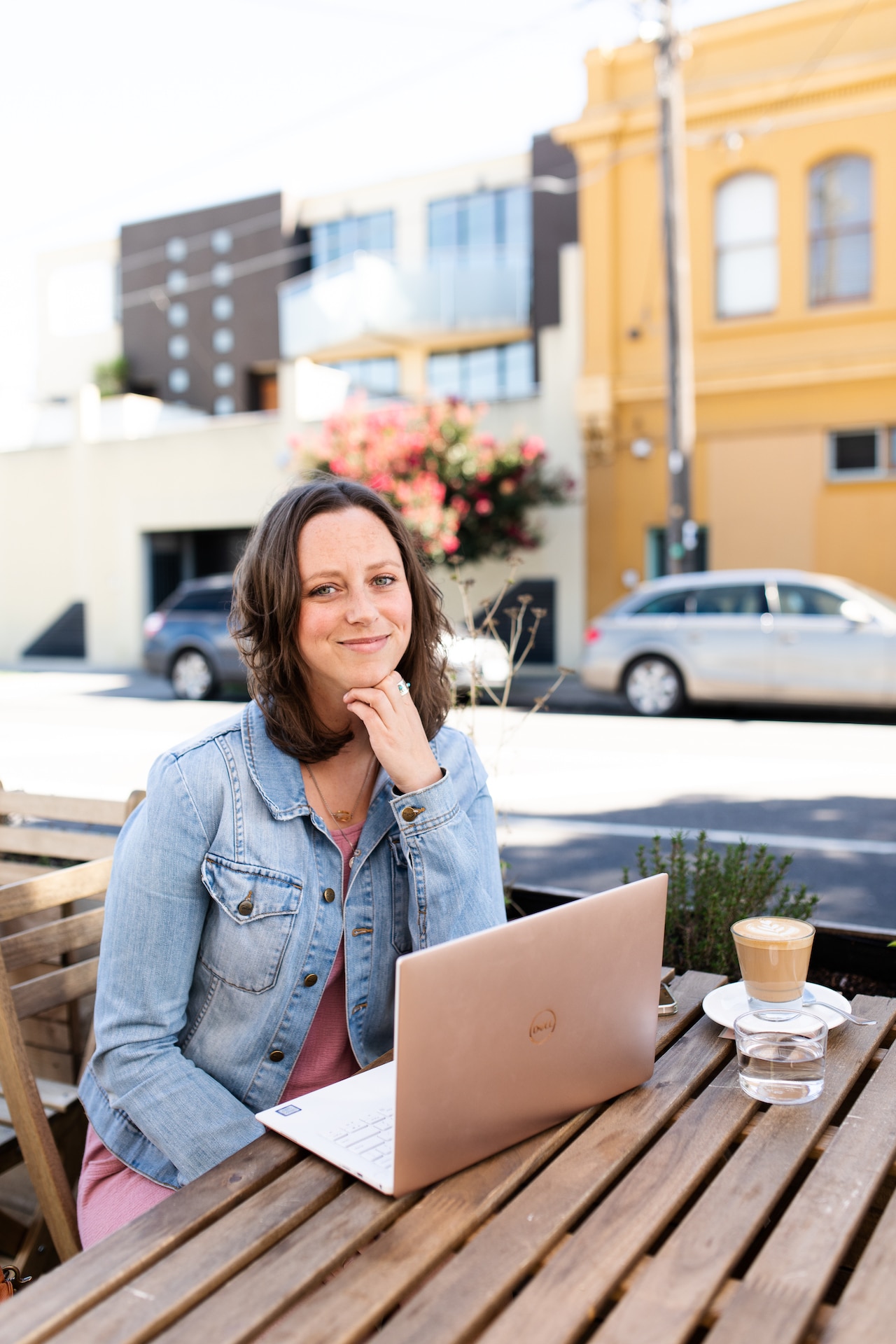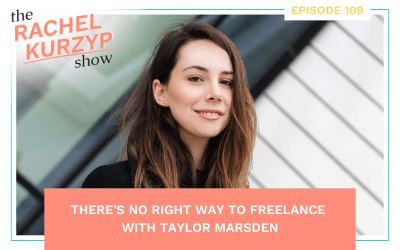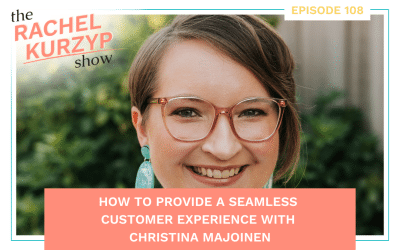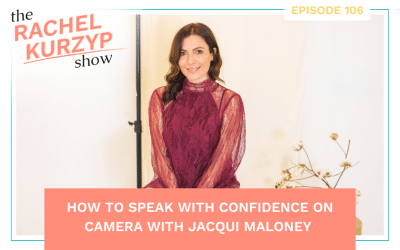Should I start a podcast is one of the first questions I’m asked by my coaching clients.
And my answer every time is no.
Today I’m going to share the benefits and challenges of starting a podcast so you can decide if it’s the right platform for you.
But I’m going to do this with a twist.
The reason why I tell my clients not to start a podcast is that they don’t truly want to start one. But they think it’s the only way to enjoy the benefits the medium is known for.
So I’m going to share the 5 main reasons why clients and my community tell me they want to start a podcast and provide alternatives that may be better suited for the time and financial constraints, personal responsibilities, client commitments and mental and physical health boundaries many small business owners have.
Reason #1 – writing feels hard, and they express themselves easier through speaking
Some people process best through doing, such as writing and others through talking or speaking aloud. Your podcast episode isn’t a space to explore, develop and organise your thoughts. It’s a space where you share your ideas once they’re clear.
When clients share this reason with me, I know immediately that they need support with forming and articulating their ideas. If this feels true for you, too, I recommend you record yourself speaking your ideas aloud to yourself or a friend and then use a transcribing app to turn your audio into words.
You can use these words on social media, in emails, blogs, etc. And if you want to share audio content because this is where you feel the safest or most confident version of yourself, you can rerecord the main points and share them in the same ways as I mentioned above, for example, sending an audio message via an email.
Most podcast hosts use scripts or detailed talking points to guide them. And learning how to write as you speak is a skill that can be developed. But it takes time. If you choose to free record, you must put aside time and money to edit the episode to ensure listeners can follow your train of thought and come away with takeaways.
Sharing audio content in other ways will still allow you to express yourself, build a strong personal brand and form deep relationships with your potential clients without the talking points or editing constraints of a podcast.
Reason #2 – want a space to share their stories more deeply
So many of my clients are exploring other marketing channels outside of social media, which makes me so happy. Blogging is the logical choice if you want to explore different storytelling techniques and tell stories generally.
Podcasting can be used for storytelling but requires technical elements like sound and music to create ambience and flow. Again, you can upskill in this area, but it takes time and money. Using written elements or sharing visual elements is often easier as most of us have some experience creating content with this.
I also suggest to my clients that they list every mini topic, story or idea they want to cover under an overarching theme or subject, e.g. writing podcast scripts that fall under the theme of content creation. If they have 30+ ideas, then it may be worth exploring a blog because, like podcasts, successful blogs often have a clearly defined theme and purpose.
Blogging is also great for SEO, allows two-way conversations with people engaging with your content, and can easily be repurposed across your other marketing channels.
It also has a lower barrier to entry because you probably already have a blog set up as a part of your website, so that it won’t require additional setup costs like a podcast.
If you decide to experiment with blogging and love it, you can always turn your blog posts into podcast episodes later.
Reason #3 – love having conversations with other business owners and want to expand their networks
Podcasting can be great for growing your audience if that’s a priority for you. Having guest speakers is one of the best ways to tap into another audience similar to yours.
There are some challenges to consider if you want to explore this route. Namely, you need to know how to interview your guests to ensure the conversation is supportive for your listeners.
No one wants to listen to two people talking stuff without a clear purpose. The only time this might fly is when the guest is a celebrity. Or when the podcast is about highlighting different individuals, not focusing on a subject or theme.
Of course, this skill can be learnt, but for many of my clients, trying to hold space for a conversation, ask questions and summarise key points is overwhelming. Audio isn’t forgiving, and it’s really obvious when an individual isn’t comfortable being an interviewer.
Podcasts that use the interview format often struggle to have a dedicated audience because people only tune in when a guest interests them. And the host is often forgotten because their expertise and the topic they’re known for aren’t the focus.
If you want to connect with peers and expand your network, consider alternative ways to collaborate, like hosting Instagram Lives, doing joint Zoom workshops and running in-real-life co-working days or meetups.
In these situations, it’s easier to share the spotlight so your expertise is front and centre, and you can assume the role of the teacher etc. and not the interviewer.
You’re also able to direct the audience to interact with your content at the time or immediately after, e.g. telling people to click the link to a PDF you shared in the chat.
Reason #4 – want to demonstrate their expertise and make more sales
Not everyone’s expertise is best suited to audio channels. Designers, photographers, web developers, personal stylists, earring designers, architects etc., may find that video channels like YouTube or Reels allow them to capture behind-the-scenes processes, ideas and mood boards and showcase the finished product with ease and greater impact.
If you identify as a service provider that relies on visual elements to tell your story, connect with your potential clients and show the quality of your work, you will need to consider carefully the purpose of your podcast if you decide to start one, especially if you want to use it as a sales channel.
There are already so many business owners broadly covering their profession, so what would be your unique take on the Pantone colour of the year, for example? And would your potential clients need to listen to this episode to prepare them to work with you?
Most business owners don’t make sales directly off their podcasts but use the channel to prime and prepare their audience before selling to them via email. You can do this all in email without the pressure of competing with 1000s of other designers sharing design tips.
Email marketing still has the highest conversion rate of marketing platforms and allows you to share and embed visual elements. Producing email content would take less time than a podcast episode because there is less tech involved. And you’d also have access to better analytics that would support you to improve your sales content.
It’s hard to measure the success of a podcast because audience numbers, chart rankings and reviews and ratings are always indicative of sales or predicated sales. And this can be frustrating when you want to know its effectiveness as a sales channel and for your sales funnel.
Reason 5# – struggle coming up with content ideas, so want to create weekly hero content
Having a podcast isn’t a content plan in itself. A content plan helps answer content creation questions like what to create, where to share it, how to tell if it’s working, and what to adjust if you want to make more money.
When my clients share this with me, I know they would benefit from clarity on what their potential clients need to do, think or feel to prepare them for working together. This would solve the issue of coming up with content ideas regularly. And would make it easier to reuse and repurpose content they create across channels, making their hard work go further.
Most podcasts produce weekly episodes, so that’s still 52 content ideas you need to have a year. And these ideas need to be in-depth enough that they can stand alone as a 10-30 minute episode.
Most business owners don’t have time to create this type of long-form content every week. It takes me 2 hours to write and record my weekly 10-minute solo episodes. And this doesn’t include the time to come up with the idea, to market the episode multiple times and for my editor to edit it.
If marketing isn’t your background, dedicating 2-3 hours a week to produce one piece of standout, hero content would seem like the logical choice.
But I’ve seen my clients, time and time again, start a podcast and then not be able to maintain it because they haven’t considered the time it takes to create episodes (50% of podcasts fail in the first year for this reason).
And because they haven’t got the engagement they’d hoped for and are used to on social media and email because the medium doesn’t prioritise this.
Podcasters spend hours creating communities on other channels and use their episodes to drive traffic to these communities. Or have sales strategies like using lead magnets to move potential clients onto email lists.
All of these content marketing challenges could have been avoided if they had spent 2-3 hours creating a content plan. A plan that would have helped them to decide on the best content marketing strategy for them.
I hope that addressing the common reasons why my clients and community want to start podcasting that it’s helped you to understand your own reasons and if podcasting is the right marketing channel for you.
Thanks so much for tuning into today’s episode.
If you’ve found what I’ve shared valuable, please leave a review and hit the subscribe button so you don’t miss when a new episode drops every Wednesday.
Resources and links
Book your call: Learn how we can work together in my 1:1 Coaching Program

